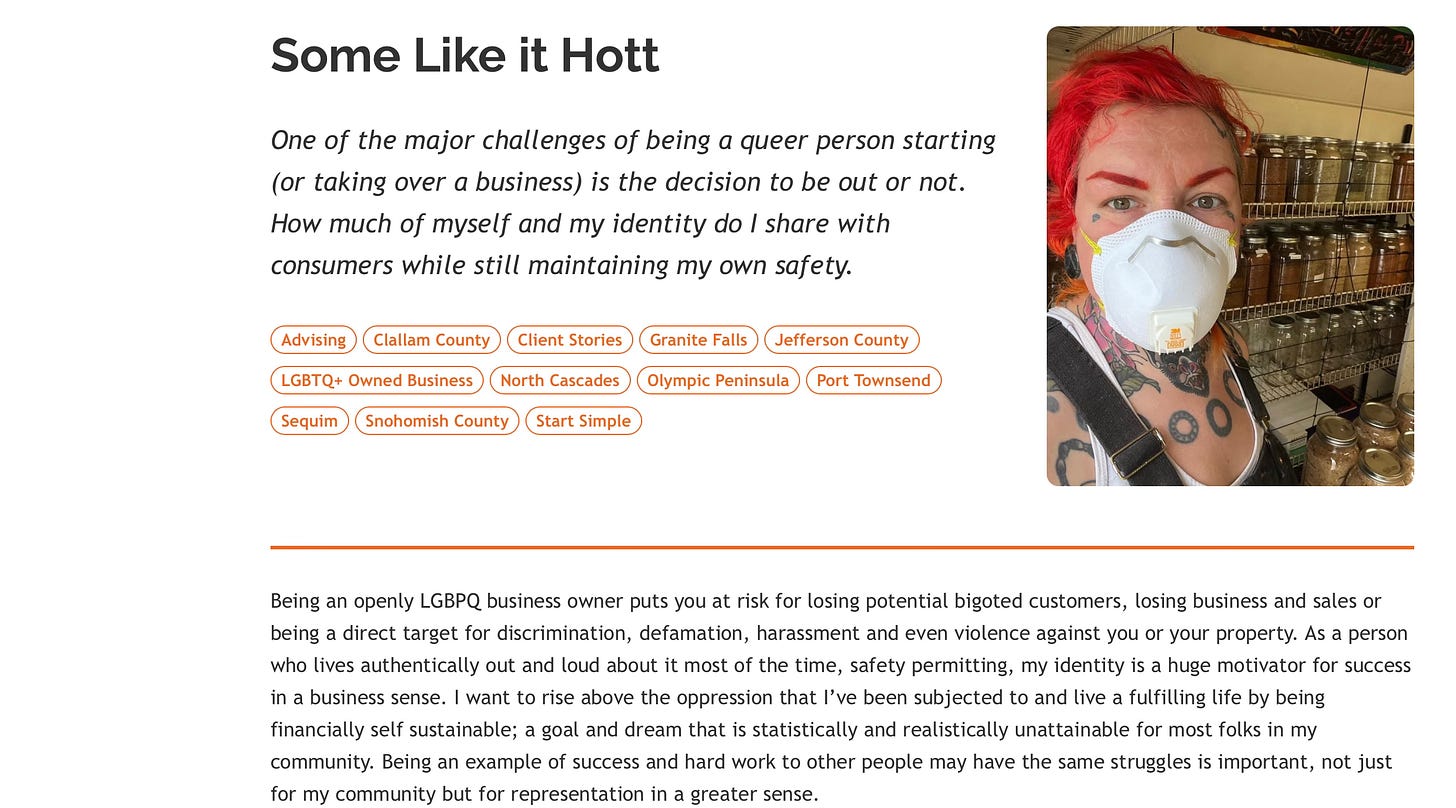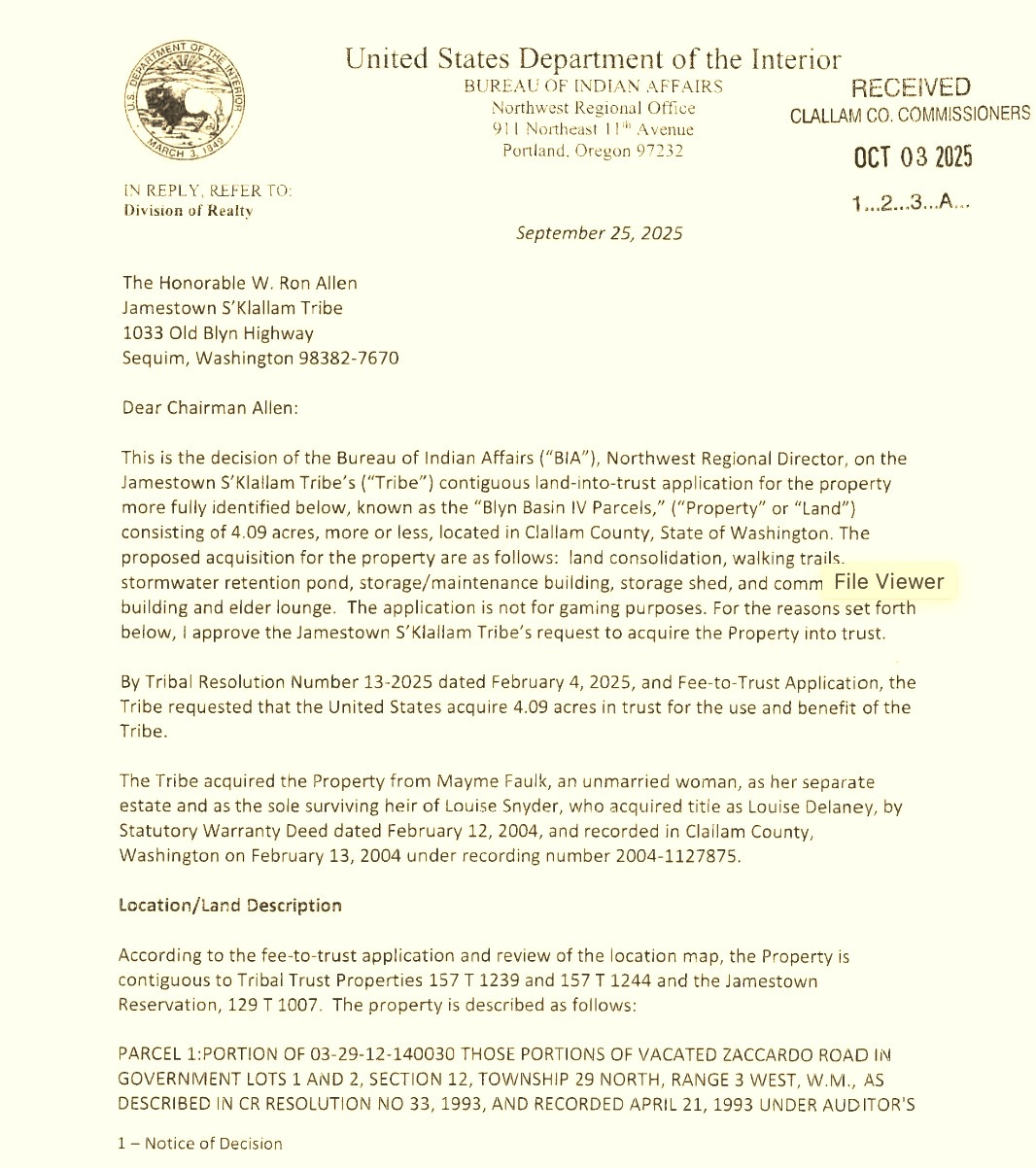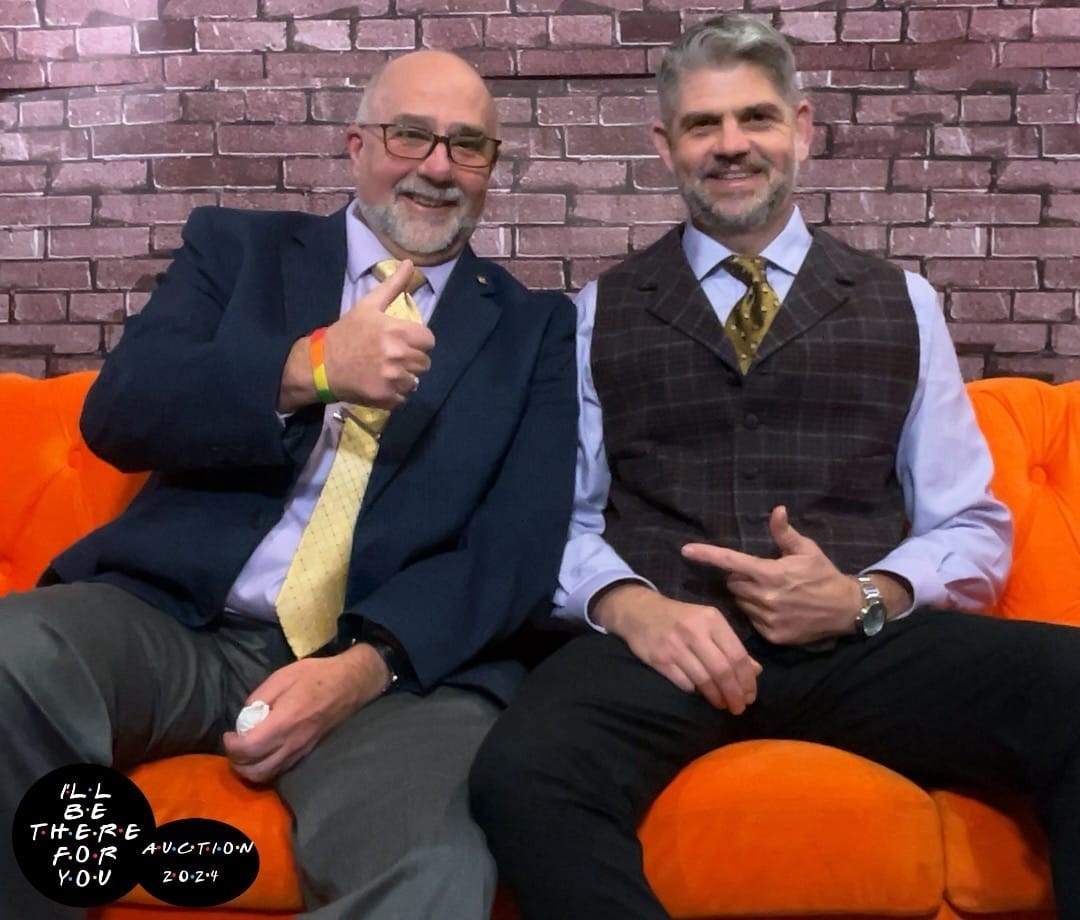Tonight marks the first of three public Budget Town Hall Meetings hosted by the Clallam County Board of Commissioners as they prepare the 2026 budget. Once again, the county faces a deficit, and the commissioners are floating tax hikes to fill it. And once again, the shortfall is the result of years of unchecked spending and a culture that rewards mistakes rather than accountability. Take a closer look at how we got here—and what it says about Clallam County’s approach to stewardship, priorities, and public trust.
A $159,000 “Small Mistake”
After years of overspending, the county is now weighing layoffs and service cuts. A year ago, commissioners approved a “budget emergency” resolution to cover a printing error by the Auditor’s Office—overseeing elections—that cost taxpayers $159,000.
According to the resolution, the Auditor’s Office “incorrectly predicted the additional cost… that should have been $66,000 instead of $17,000” and “an error in the amount of $81,000” which resulted in reprinting $159,000 worth of ballots.
Commissioner Mike French brushed it off:
“We’ve only had a presidential primary in our state for a few years… sometimes small mistakes are made.”
If a $159,000 printing error counts as a small mistake, taxpayers should wonder what qualifies as a big one.
Grants, NGOs, and Vanishing Accountability
Each week, hundreds of thousands of dollars leave county coffers for nonprofits and “partner” organizations—often with little oversight or measurable outcomes.
In September alone, $617,281 went to Peninsula Behavioral Health for a 36-unit “permanent supportive housing” project, where homeless individuals with repeated incarcerations will be given housing priority—complete with harbor views, dishwashers, and EV chargers.
Another $14,943.82 was sent to the Center for Inclusive Entrepreneurship, whose mission statement centers on “justice, inclusiveness, diversity, and equity.”
While such ideals sound noble, they do little to address the economic reality of one of Washington’s most financially strained counties. Clallam’s taxpayers are effectively funding programs filtered through the lens of identity politics, not local need.

From pizza parties for drug addicts to NGO contracts, county leaders have shifted public work into private hands—shielded from transparency laws and direct voter scrutiny.
The Tribal Trust Land Question
The commissioners recently received two more notices from the Bureau of Indian Affairs regarding the Jamestown S’Klallam Tribe’s intent to convert additional parcels into tribal trust land—removing them from local tax rolls permanently.
For over a decade, commissioners have declined to calculate or disclose the fiscal impact of these conversions, even when the BIA has specifically requested the data.
While county leaders publicly claim to support “fairness” and “partnership,” their silence has allowed millions in taxable land to vanish from the books—shifting the cost of funding schools, hospitals, and infrastructure onto everyone else.
Only this year—facing mounting criticism—did the commissioners finally send a letter asking to “discuss” a contribution agreement. Two months later, no response. The gesture was too little, too late, and timed suspiciously close to the push for a new property tax hike.
Taxes Without a Vote
Even as the public braces for higher property taxes, Commissioners French and Ozias are signaling support for additional councilmanic taxes—those passed without a public vote.
Among them:
A Cultural Access Tax, promoted quietly with help from arts groups like Olympic Theatre Arts; and
A new Criminal Justice Tax was authorized by HB 2015, signed by Governor Bob Ferguson in July 2025, which allows counties to impose an extra 0.1% sales tax for “public safety” without voter approval. The commissioners are expressing support for enacting this new tax next summer.
These measures could appear suddenly—with no ballot and no public say. Bottom line: prepare to be taxed more.
Towne Road: The $1.5 Million Detour
What began as a half-mile of unfinished road became a textbook case of how influence, politics, and neglect cost taxpayers dearly.
In 2023, county staff warned that if Towne Road wasn’t completed, a crucial grant would expire—forcing local taxpayers to pay for it instead of using state funds.
Rather than act, the commissioners funneled money to other projects—including grants to the Jamestown Tribe—and let the road sit closed for more than a year. When the work finally resumed, the county had to spend $1.5 million of its own funds.
That waste now echoes through the budget: critical safety fixes, such as the Old Olympic/Cays Road intersection and Three Crabs flood mitigation, remain unfunded.
A “Budget” That Tells a Story Instead of the Truth
When the long-awaited Towne Road “budget” was finally released this June, it wasn’t an accounting—it was a narrative about salmon recovery and ecological success.
What was missing:
The $500,000 that was paid by the Jamestown Tribe after county commissioners quietly rewrote a resolution absolving the Tribe of responsibility for breaching the dike ahead of schedule.
The abandoned gate project—Commissioner Ozias’ push to install automatic, taxpayer-funded gates near a campaign donor’s property. The gates were backordered and never installed, but not before months of staff time and consultant hours were spent designing and planning them.
And the real cost of the levy breach—closer to the $15 million bond demanded by the Jamestown Tribe, not the $2 million claimed in county reports.
How much of that went to Shannon & Wilson, the outside consultant who profited from the planning, rework, and endless revisions? County records don’t say—and that’s the problem.
In Clallam County, budgets have become storytelling exercises, not financial reports.
The Conservation District Windfall
Last month, commissioners approved another major funding increase: $2 million over ten years for the Clallam Conservation District, disguised as a decade-long property fee. Despite limited data and measurable outcomes, the vote was rushed through on emotion and fear-based environmental rhetoric, not accurate data. It sent a clear message: special interests continue to take priority over the people who pay the bills.
Law Enforcement for Some, Not for All
Reports continue to surface of dogs running loose, calls for service going unanswered, and an understaffed jail and juvenile detention center—while politically connected individuals receive special treatment.
When Charter Review Commissioner Jim Stoffer requested private security due to criticism, thousands in county funds were quickly found to accommodate him—led by Commissioner Ozias. Meanwhile, county law enforcement staffing levels are one-third the national average.
If money can always be found for political protection, the problem isn’t a lack of funds—it’s a lack of fairness.
A Chance to Ask the Hard Questions
The county’s Budget Town Halls are an opportunity for residents to ask the questions that never seem to get answered.
Why is there always money for mistakes—but never for roads, deputies, or flood control?
Why do grants to NGOs rise as accountability falls?
And when will transparency—not politics—guide how our money is spent?
Attend a Budget Town Hall
Port Angeles: Tuesday, October 14, 2025 – 5 p.m.
Commissioner’s Board Room, 223 E. 4th Street, Port Angeles
Virtual option: Zoom link
Meeting ID: 836 9266 4344 | Passcode: 12345Sequim: Wednesday, October 22, 2025 – 5 p.m.
Guy Cole Event Center, 202 N. Blake Avenue, SequimForks: Wednesday, October 29, 2025 – 5 p.m.
Forks City Hall Council Chambers, 500 E. Division Street, Forks
Public comments can be sent to Eleanor Hill, Finance Department Eleanor.Hill@clallamcountywa.gov or the Clerk of the Board Loni.Gores@clallamcountywa.gov.
Closing Thought
Budgets reveal priorities—and Clallam County’s priorities aren’t lining up with the public’s.
Our leaders talk about fiscal responsibility, but they still haven’t learned to tell the difference between needs and wants.
Needs are public safety, maintained roads, and functioning infrastructure.
Wants are grant-driven projects and feel-good programs—like helping the “trans community” open a paprika store—while the Sheriff’s Office remains understaffed and rural roads go unpaved.
The only reason the county is suddenly holding town halls and asking for feedback is that they need our vote. When have we ever seen this kind of public outreach before? Last year, those same budget sessions cost $30 to attend. Now, they’re free.
Voting “no” is the only way to hold these leaders accountable. Otherwise, it’s a blank check for more of the same: excuses, overspending, and misplaced priorities.
The numbers may not lie—but they do tell a story.
It’s time taxpayers start reading between the lines.















